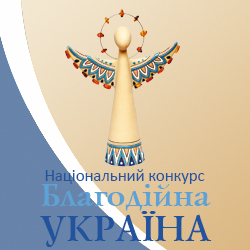


Гранти Європейської асоціації охорони природи
04.06.2018
Європейська асоціація охорони природи (EOCA) приймає заявки від громадських організацій на отримання фінансування для проектів з охорони природи. Обсяг гранту - до 30 000 євро. Дедлайн - 30 червня 2018 року (далі - англ.).
Більше грантів у розділі Гранти
Project applications are shortlisted according to their ability to meet EOCA's criteria for funding (see below). Using this criteria, the shortlist of projects is drawn up at the sole discretion of the General Managers, the Scientific Advisors and EOCA's Board of Directors. The General Managers will seek further advice from EOCA’s Scientific Advisors if required. Due to the many diverse nationalities making up the whole panel, all applications must please be written in English.
The projects to successfully win funding will be chosen from the shortlist via a public vote and an EOCA's members vote (in March for applications received in November and October for applications received in June). The public vote is held in conjunction with a range of national magazines throughout Europe. In Spring 2017, 60.4 million people were reached through this process!
The public vote involves some effort on the part of the projects involved, to mobilise supporters and generate votes for their project over a two week period. However, the process also gives projects a very valuable opportunity to raise the profile and awareness of their organisation and its work in an international arena.
Members of EOCA can nominate up to three projects (from different, or the same organisations) each year. If you, as a conservation organisation, do not have any personal contacts to our members, please do not worry! Apply directly and if your project gets onto the shortlist, we will help you find a nominator!
Project applications MUST:
- protect a threatened species or habitat;
- have a link to the outdoor enthusiast (see below); AND
- involve hands-on practical conservation work.
Before starting your application, please read the following carefully. It will help you understand the types of nature conservation projects we are looking for and the information we need from you. Please also ensure to look at our frequently asked questions page.
Link to the outdoor enthusiast
As EOCA is raising money from the European outdoor industry, we feel that conservation and restoration work should go hand-in-hand with responsible use of the ‘wild’ areas we all enjoy. Projects MUST therefore demonstrate a specific link to the outdoor enthusiast (such as hikers, bikers, kayakers, climbers, bird watchers or explorers etc).
This is intended to be a positive, rather than limiting focus and may include enhancing the visitor’s experience in an area as well as protecting an area from any detrimental impact caused by the visitor. It will make projects very relevant to those that are contributing towards their funding. As a small organisation, we hope that, not only will this give the projects we support a unique and specific focus, but will help other smaller organisations, which may not otherwise be considered for funding elsewhere, attract a grant from EOCA.
The two main areas that must be addressed in your application are:
1. Protect, enhance or restore threatened key species, habitats or broader ecosystems in ‘wild’ areas (10 points)
EOCA defines ‘wild’ areas as non-urban environments and ecosystems occurring in as natural a state as possible, given the area’s location and use. This may include for example moorland, hills, mountains, coasts, rivers, forest, grassland, peatland and ocean areas. ‘Key’ species, habitats or ecosystems are defined here as those which are threatened, those which play a ‘keystone’ function, or those which are indicators of broader ecosystem health*. The project must identify and address the key threats to the species, habitats or broader ecosystems, and how it will protect and /or enhance them. Innovative solutions to ‘old’ problems will be especially welcome!
*Is the species an ‘indicator’ of wider habitat and ecosystem health? i.e. by recovering its populations, will it have a beneficial effect on other species and wildlife communities? Can the species be considered a ‘keystone’ species i.e. one that has a disproportionately large effect on its environment relative to its abundance, and may create conditions for other species to thrive?
2. Consider the needs of the outdoor enthusiast (10 points)
As highlighted above, the project must enhance the experience of outdoor enthusiasts as well as protecting the identified species, habitat or broader ecosystem from any negative impact by their visits. Projects may, for example, enhance a visitor’s experience by protecting a threatened species they might then see, or protect an area by ensuring trails / rock faces / waterways and /or associated information / education keeps visitors from damaging fragile habitats or disturbing vulnerable wildlife.
Extra points will be given for innovative solutions to ‘old’ problems, particularly if they can be transferred to other geographical areas!
At this stage, if the project being assessed receives less than 12 points, it will not proceed any further in the application process.
Project Outcomes:
Your application should include 3 easily identifiable and measurable outcomes to show how the project will address the issues above. They should consider:
1. Conservation measures addressing specific issues and root causes (5 points)
What are the identified threats to the species / habitat / ecosystem? What are the impacts of these threats? How are these threats going to be eliminated, alleviated or better managed? How will the habitat / ecosystem be protected, enhanced or restored? How will the project deliver the desired outcomes? How will the experience for the local community, the visitors and the habitat be enhanced in the long term?
Please note: projects must include practical on-the-ground conservation work, such as tree planting, removal of invasive species, anti poaching measures, habitat restoration etc.
2. Involvement / engagement of local people (5 points)
In order for a project to be sustainable, it is vital that local people are fully engaged. If local communities and also communities of interest are not involved, they may not feel any need or desire to ensure that the good work that has been started continues into the future. Obviously, if specialist work needs to be carried out, relevant experts may need to be brought in, but wherever possible, projects will involve the local community, giving them ownership of the project and its outcomes, and contributing to their livelihoods during and after the project.
Please note: EOCA will consider projects which provide social benefits as a result of conservation measures. however, projects whose sole goal is to provide only social benefits will NOT be eligible; projects must be implementing conservation measures with a link to the outdoor enthusiast.
3. Education and communication (5 points)
Education and communication should be aimed at both local communities and visitors. Education should include communicating responsible ways of enjoying the project area, suggestions as to how visitors and locals can reduce threats to the species, habitat or ecosystem, and ways in which they can help protect the biodiversity of the project area. How will you reach the potential visitors to the area effectively and communicate with the local community, and how will this process continue once EOCA’s funding for the project has finished?
Please note: EOCA will not consider projects that are based on 100% education.
Projects must also:
Be measurable and time orientated (5 points)
The work must be completed and demonstrate a clear and measurable impact between 12 months and 2 years from the project start date. What indicators can be measured to evidence impact? For example, if training is given, how will you measure it's success? If anti-poaching measures are used, how will you assess their effectiveness?
Some examples of measureable and time orientated outcomes: 'number' trees to be planted by 'date'; 'number' meters of trail to be created/restored by 'date'; 'number' clean ups/removal of invasive species carried out over 'number' days and covering 'number' hectares and 'number' of 'locations'; 'number' workshops to be carried out by 'date'; at least 'number' volunteers/locals undertaking 'project goals' over 'number' days.
Provide a legacy (5 points)
The beneficial effects of the project should be sustained beyond the duration of the project. What processes will be set up to ensure the work that has been started will continue to be monitored and managed in the long term? How will the project benefit the livelihoods of the local people or the local economy both during and after the project?
The types of project EOCA will NOT support (unless they are linked with local biodiversity loss / education about conservation etc) are:
- Installation of alternative energy
- Community or social projects
- Alternative / sustainable transport
- Waste management projects (unless linked to detrimental effect on local biodiveristy / education of recreational users of the area). This includes local community recycling / incinerating projects.
- Building projects
- Projects in urban areas
- 100% research / PhD's / MSC's / expeditions / conference attendance
- 100% education projects
- Animal welfare and rehabiliation of captive animals
- Which are party political or linked to religious groups
- Covering general overheads, maintenance costs or salary payments
- Seeking the acquisition of buildings
- Promoting violent or illegal action
- Involving lobbying governments / campaigning on environmental issues
If your organisation has previously applied for funding:
In order that the process is fair to all those taking part and gives newcomers to the process equal opportunities to be successful, EOCA asks organisations to adhere to the following policy:
If a project gains funding - EOCA asks the organisation not to apply again for funding for another 2 funding rounds (1 year) from the date of gaining funding
If a project has been shortlisted twice and not gained funding either time -
EOCA asks that the organisation does not reapply for another 2 funding rounds (1 year)
If a project has applied on 3 occasions but never gained a position on the shortlist (even if the project has been amended following feedback from EOCA) -
EOCA asks that the organisation does not reapply for funding for another 3 funding rounds (18 months)
Finally, please be clear and concise when writing your application, with clearly stated aims, goals, methods and outcomes; we are a very small team with a lot of applications to read, and only so much time in which to do this.
Контакти
- Європейська асоціація охорони природи (EOCA)
- [email protected]
- +44 1539 727255
- http://www.outdoorconservation.eu/
- https://www.facebook.com/eocaconservation/








Коментарі